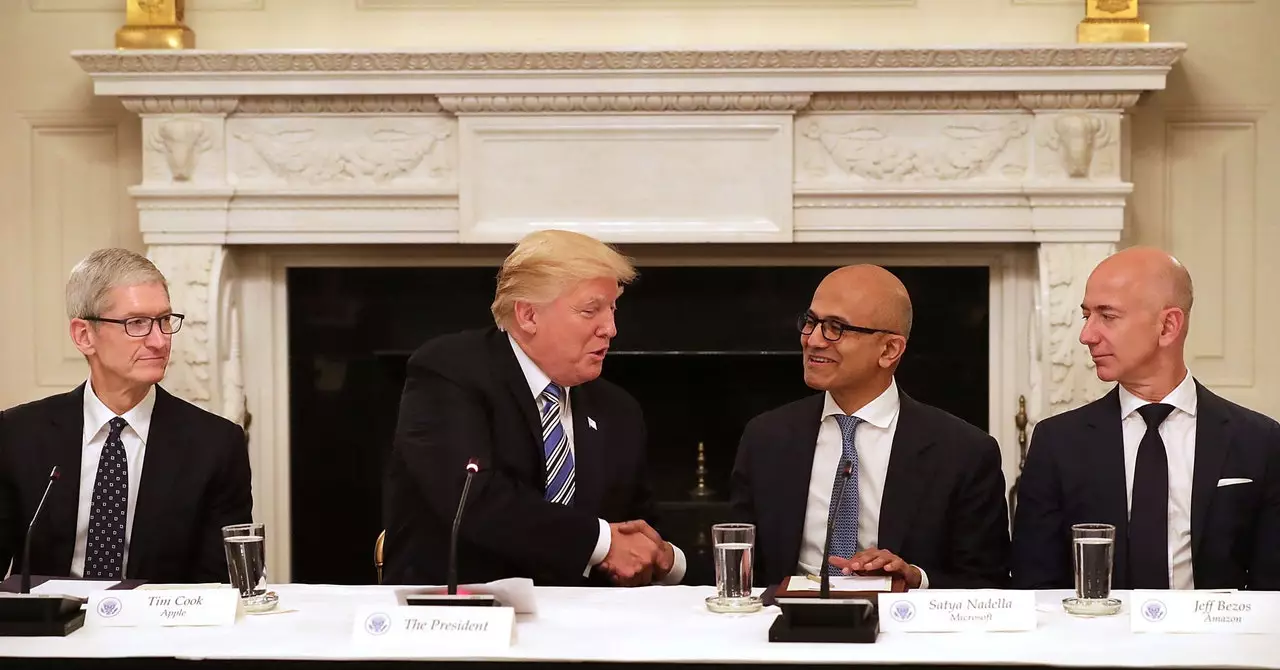The political landscape surrounding technology regulation in the United States is poised for potential upheaval with the prospect of Donald Trump returning to the White House. The recent promises made by Trump regarding key figures in tech regulation, particularly targeting individuals like Gary Gensler and Lina Khan, reflect a broader agenda that aligns with the interests of many within the tech community. This shift raises critical questions about the future of business practices, regulatory frameworks, and the implications for digital innovation.
One of the most celebrated pledges from Trump’s camp centers around the ousting of Gary Gensler, the current chairman of the Securities and Exchange Commission (SEC). Gensler’s tenure has been marked by a series of lawsuits against cryptocurrency-related businesses, a focal point of contention under Biden’s administration. Trump’s promise to remove Gensler has sent waves of excitement through parts of the crypto community, who view his regulatory actions as overly aggressive and detrimental to industry growth. If Trump follows through, it could lead to a less restrictive environment for cryptocurrencies, potentially fueling a resurgence in innovation and investment in this sector. However, this also raises concerns about consumer protection and market regulation, an issue that often takes a backseat in the rush to deregulate.
In another bold move, Trump has voiced intent to commute the life sentence of Ross Ulbricht, the controversial figure behind the Silk Road. The dark web marketplace facilitated numerous illicit transactions, including the trade of drugs, but it also played a pivotal role in popularizing Bitcoin as a transactional currency. For many crypto advocates, Ulbricht’s punishment is seen as disproportionate, and they argue that his case exemplifies the challenges faced by technology disruptors in a regulatory environment. However, freeing Ulbricht could evoke a backlash from social reform advocates who argue for accountability in the realms of online transactions and their societal impacts.
The fate of Lina Khan, the FTC chair who has been a focal point in the antitrust conversation, remains uncertain under a potential Trump administration. Khan’s aggressive stance on regulating Big Tech, especially in her legal wranglings with companies like Google and Meta, has drawn fire from various sectors, including former allies on the Democrat side. Critics like LinkedIn co-founder Reid Hoffman and Elon Musk have labeled her approach as damaging. This criticism could culminate in her dismissal if Trump returns to power, which Dan Ives from Wedbush indicates may lead to a revitalization of Big Tech mergers and acquisitions, making the implications far-reaching for both innovation and market competition.
Amidst the climate of change, some voices in Trump’s circle are advocating for antitrust measures as solutions to perceived bias and censorship within major technology platforms. Figures like Vice President-elect J.D. Vance echo a sentiment that the likes of Google and Facebook suppress conservative voices, thus posing a threat to democratic ideals. Vance’s call for actions like breaking up these tech giants reflects a growing concern about the power imbalance in the digital space. He believes that comprehensive reform, including possible antitrust solutions, is essential in addressing these injustices.
While many of Trump’s promises signal a clear shift towards a more favorable environment for technology companies, analysts caution that outright cessation of antitrust actions is unlikely. Adam Kovacevich of Chamber of Progress suggests that Trump may adopt a dual approach, using existing suits as negotiation tools to secure favorable treatment on issues such as speech and content moderation. The paradox of potentially easing regulatory pressures while also coercing compliance raises ethical dilemmas that stakeholders will need to navigate.
The evolving interplay between technology, regulation, and politics is set to be tumultuous in a Trump-led administration. While promises of deregulatory measures resonate with segments of the business community, the broader implications for accountability, fairness, and innovation cannot be overlooked. As the political and technological arenas collide, the future of tech regulation hangs in the balance, and the outcomes will significantly affect the digital landscape for years to come.

